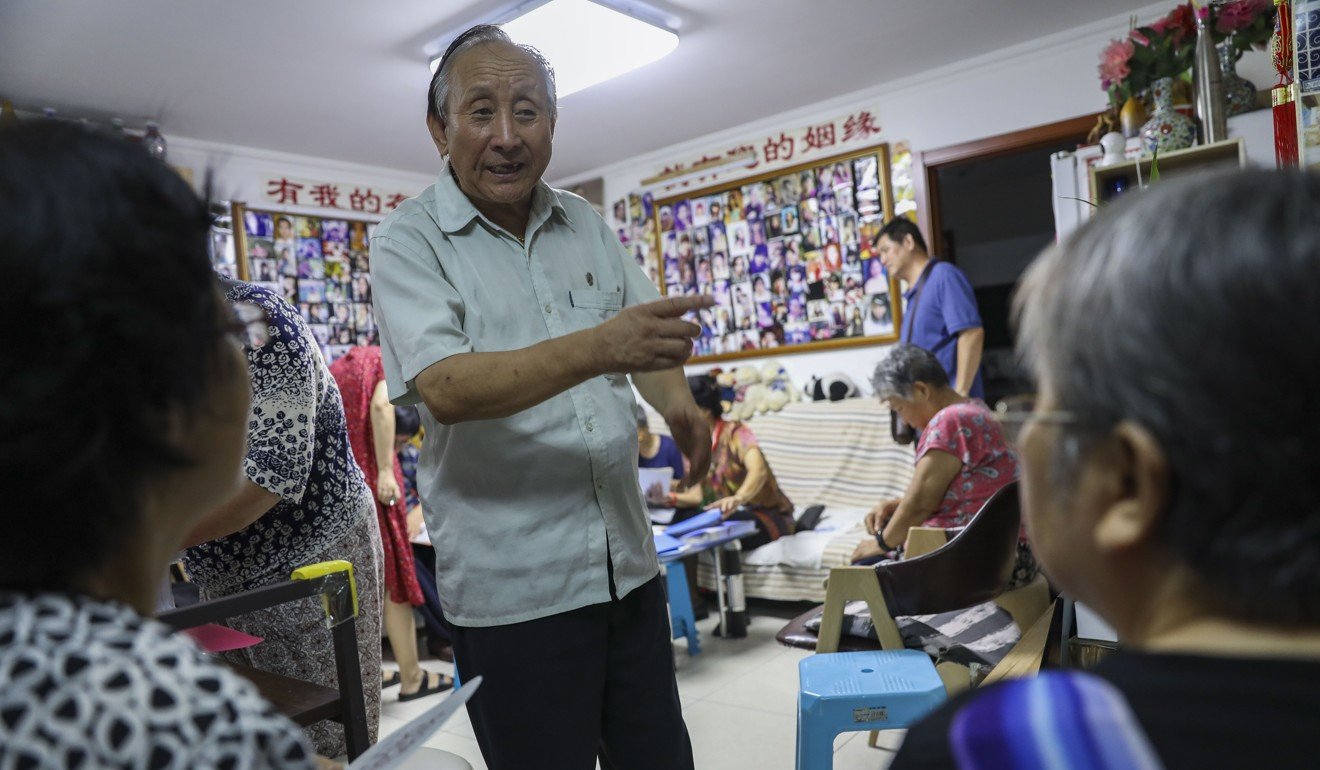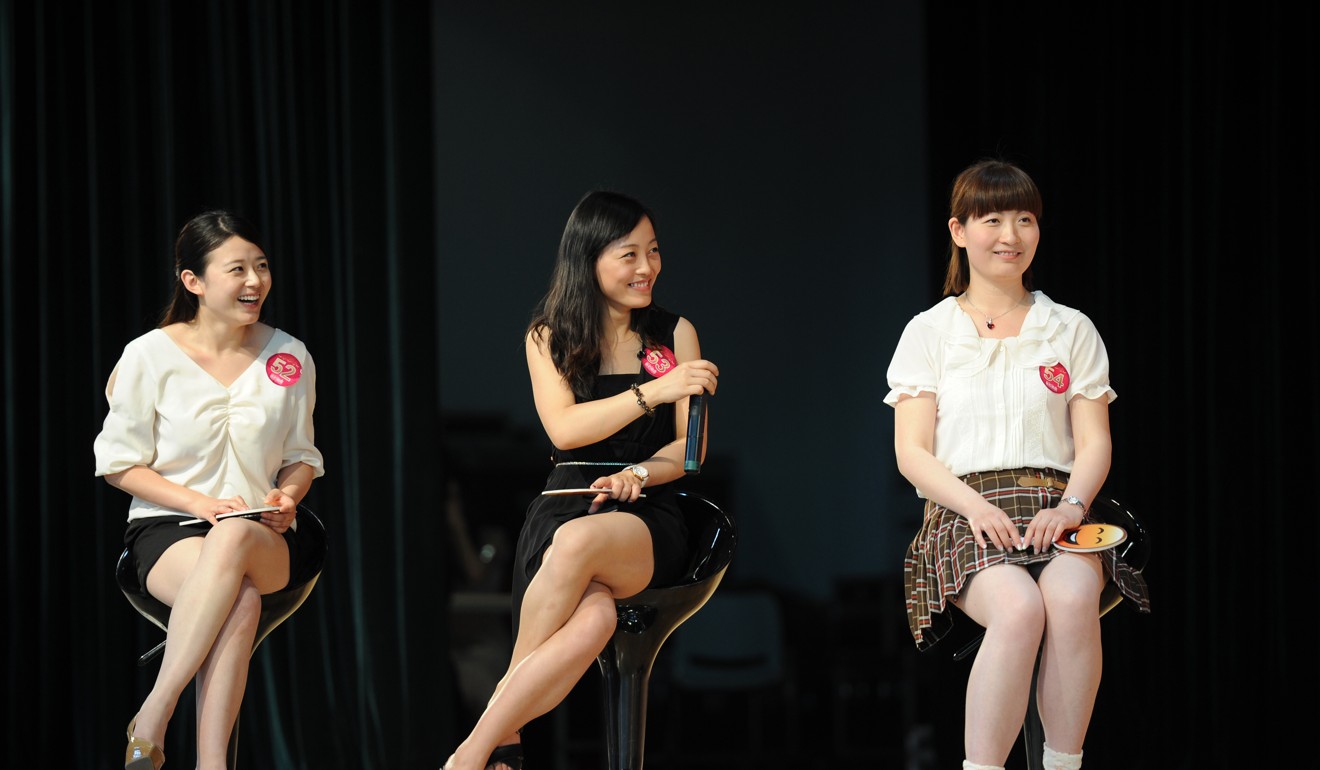
Why young Chinese women won’t be rushed into marriage
To mark the festival of Qixi, also known as Chinese Valentine’s Day, a veteran Beijing matchmaker describes how the landscape has shifted in the four decades he has been helping couples tie the knot
Flicking through the files he keeps on dozens of Chinese singles Zhu Fang, one of Beijing’s leading matchmakers, points to an alarming trend he has noticed in recent years: he now has far more single women on his books than men.
While the men on his books usually get snapped up relatively quickly, the 74-year-old says it can be harder to women to find a suitable match.
Zhu, whose flat is lined with photos of young singles, says he currently has files for 70 single women, but only 27 men.
Speaking to the South China Morning Post ahead of Friday’s festival of Qixi, also known as Chinese Valentine’s Day, Zhu reflected on the changing nature of love and romance in the four decades he has been operating.
“Finding partners is getting more difficult for these young women even though it is easier to get to meet people these days,” Zhu said.
“It was easier before because people cared more about the other’s moral standards and less about what they did for a living.”
His observations, honed over four decades of playing Yuelao, the Chinese god of marriage, highlight the growing trend for increasingly educated and career-focused urban women to defer marriage, or not to bother at all, despite the strong social pressure to marry and have children that persists in many areas of Chinese society.
But alongside this trend has come an increasing stigmatisation of women in their late twenties and early thirties as “sheng nu” or leftover women, who are castigated for being too spoilt or irresponsible to settle down.
But Zhu, who has helped more than 1,665 couples to tie the knot, observes that women are now more likely to take their time in selecting a suitable mate rather than rushing into marriage for the sake of tradition.
The feminist author who is changing China’s perception of its ‘leftover women’
However, he warned that sometimes young singles have unrealistic expectations and are holding out for someone who is perfect in every way – for his female clients that would be the stereotype of a tall, handsome and rich man – rather than accepting some degree of imperfection.
“If you are a five-star woman, you could try to accept a four-star man,” Zhu said. “It’s unrealistic to expect every woman to find their perfect man.”
But he also stressed that he always encouraged his clients to focus on people’s characters rather than judging them purely on their material worth.
The traditional role of the matchmaker is deep-rooted in Chinese culture and the demands for Zhu’s services remain strong – he has been forced to put up a sign on his door warning prospective clients that he can only see them on Tuesday and Thursdays to avoid being overwhelmed by visitors.

But in recent years he has noticed that young Chinese people increasingly prefer more modern ways of finding a partner – for instance by meeting people online or going to speed-dating clubs – and the bulk of his business now comes from parents hoping to help their children find a match.
“In the 1990s single men and women came to me directly to seek help. They were sincere and more focused on getting into a relationship,” Zhu recalled.
One father who declined to be named said his 36-year-old son was not that bothered about finding a partner because he had a good job and lived comfortably with the family.
“He is not anxious at all, but I am. He is too shy to talk to women and now he’s used to living comfortably with us without thinking of making any changes,” the father said.
The woman on a mission to expose China’s ‘harsh and cruel’ marriage market
When Zhu started in the matchmaking business in the 1980s he says things were very different back then. In the aftermath of the Cultural Revolution people were less concerned with social status – in fact coming from a poorer rural background could help people “avoid trouble” – and most people were most concerned with their prospective spouse’s moral values rather than their material worth.
He started when he was working as a welder and Zhu, then aged 26 was the only married man in the workshop.
One of his workmates asked if he could help him to find a girlfriend so Zhu decided to approach a young woman in a park and set her up on a date with his friend.

Soon after that he set up two acquaintances – a bus driver and a shop assistant – on a date.
Both the couples involved ended up getting married and, thanks to word of mouth, he began receiving more requests to set up couples.
An early beneficiary was Zhang Yihua, now a 65-year-old grandmother, who was introduced to her husband after she asked Zhu to find her an honest man who would be attentive at home.
“Although we have occasional arguments, I think my husband matched my request and I can’t complain about my marriage,” Zhang said.
He started charging for his services in the 1990s, and currently charges just 200 yuan (US$29) – no matter how long it takes to find his clients a match.
He said some of his clients still prefer the personal touch he offers and, in stark contrast to online dating profiles, ensures that all the singles on his books are who they say they are.
Zhu regularly arranges social events around the city such as a meal at a restaurant or sightseeing tour so the single men and women on his books can get to know each other better.
He says he likes to help people discover what their date’s character is like because, in his view, this is far more important than looks when trying to pick a prospective spouse.
Chinese village caps betrothal gifts at US$2,900 so that ‘leftover men’ can afford to get married
Zhu said the problem with some of clients was that they were too specific about what they wanted, citing the example of one poetry-loving young man who insisted that his other half must write poems too.
“That requirement is very high and too specific,” Zhu said.
His advice for clients is that they should decide what the most important qualities in a future spouse are and then compromise in other areas to broaden the number of potential matches.
But sometimes what the parents hope for can conflict with their children’s own expectations.
Liu Yu, who came to Zhu to find a suitable husband for her 32-year-old daughter, cited two men who the young woman had rejected.
“Someone who we parents believed was a good husband prospect – we knew the family well – was rejected by my daughter because he made too much noise at the dinner table, but we thought this was not very important,” said the mother Liu Yu.

Her daughter also broke up with another man who had ignored her when she was feeling ill because he was busy watching a soccer match.
“We thought they could talk this through but they just broke up,” Liu said.
But while there is still clearly a demand for matchmakers in modern China, marriage is no longer the be-all and the end-all for some modern woman.
Liu conceded that ultimately her daughter’s happiness was the most important thing – and this was not dependant on her finding a husband.
“She says she is fine now, with a good job and takes two overseas trips each year. She has some good friends, who are also single women, to hang out with. I will stop looking if she stops looking. I have my own life. I want to travel, too.”

